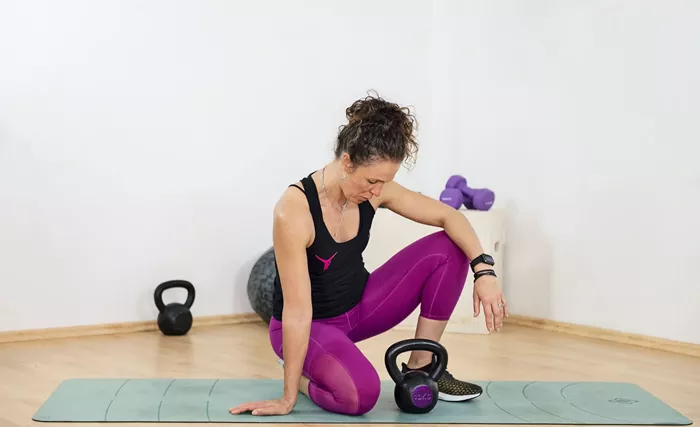Creatine is one of the most popular and scientifically supported supplements for improving athletic performance, muscle growth, and even brain function. It helps your muscles produce quick energy by supporting the regeneration of ATP—your body’s primary energy molecule. But what happens when you stop taking it?
The good news: skipping creatine won’t undo your progress overnight. However, your body will go through a few minor changes worth understanding. Experts break down what to expect—and how to maintain your results without it.
1. You May Lose a Small Amount of Water Weight
One of the most noticeable changes is a slight drop in weight—not from fat or muscle, but water.
“Creatine increases the water stored inside your muscles, which makes them look fuller and can add one to three pounds on the scale,” explains Avery Zenker, RD, a registered dietitian at Queen’s University. “Once you stop taking it, that water is gradually lost.”
This drop isn’t harmful and doesn’t affect your fitness. For many, it’s simply a cosmetic change that may make the muscles look slightly flatter. And not everyone will notice the difference.
2. Your Workout Performance Might Dip Slightly
Creatine’s primary benefit is fueling short, explosive movements such as sprinting or weightlifting. Without it, your body slowly returns to relying solely on its natural creatine levels.
“After stopping, phosphocreatine stores decline over four to six weeks,” Zenker says. “This can lead to mild decreases in performance during high-intensity efforts.”
That means your maximum lifts or sprint times might plateau or dip slightly. However, if your training is more moderate or endurance-based, you may not notice a significant change.
3. Muscle Mass Will Stay—If You Keep Training
Many worry that quitting creatine will shrink their muscles. That’s not the case—as long as your workouts and diet remain on track.
“Stopping creatine doesn’t erase the muscle you’ve built,” Zenker assures. “You might see slower progress in building new muscle, but existing gains are safe if you continue proper training and nutrition.”
Aim to keep lifting consistently, eat enough protein, and recover well. These basics are far more important than any one supplement.
4. You Might Notice a Slight Decline in Mental Sharpness
Creatine isn’t just for muscles—it supports brain energy metabolism too, especially in times of stress or sleep deprivation.
“Creatine is present in brain tissue, where it helps fuel cognitive functions,” says Andrew Franklyn-Miller, MBBS, PhD, chief medical and innovation officer at Nuritas. “Some studies suggest it improves short-term memory and reasoning, particularly in older adults or during stress.”
There’s no conclusive research on what happens to cognition when you stop taking it, but experts believe any benefits likely fade as creatine levels return to baseline.
How to Stay Strong Without Creatine
While creatine is helpful, it isn’t essential for fitness or brain health. You can maintain and build muscle with strong habits:
- Train consistently with progressive overload.
- Get enough protein—aim for 1.4 to 2.2 grams per kilogram of body weight daily.
- Sleep well and recover properly between workouts.
- Eat a balanced diet with a variety of whole foods.
“Creatine enhances the results of good training, but it doesn’t replace the basics,” says Zenker.
Conclusion
If you stop taking creatine, you may lose a little water weight, experience a mild drop in peak performance, and potentially feel less sharp mentally under stress. But these changes are minor and reversible. With smart training, proper nutrition, and enough rest, your gains—and your health—can stay strong.
Related topics:
- Why Creatine Matters for Everyone, Not Just Athletes
- When’S The Best Time To Take Creatine? Before Or After A Workout?
- The 7 Best Creatine For Men Over 40


